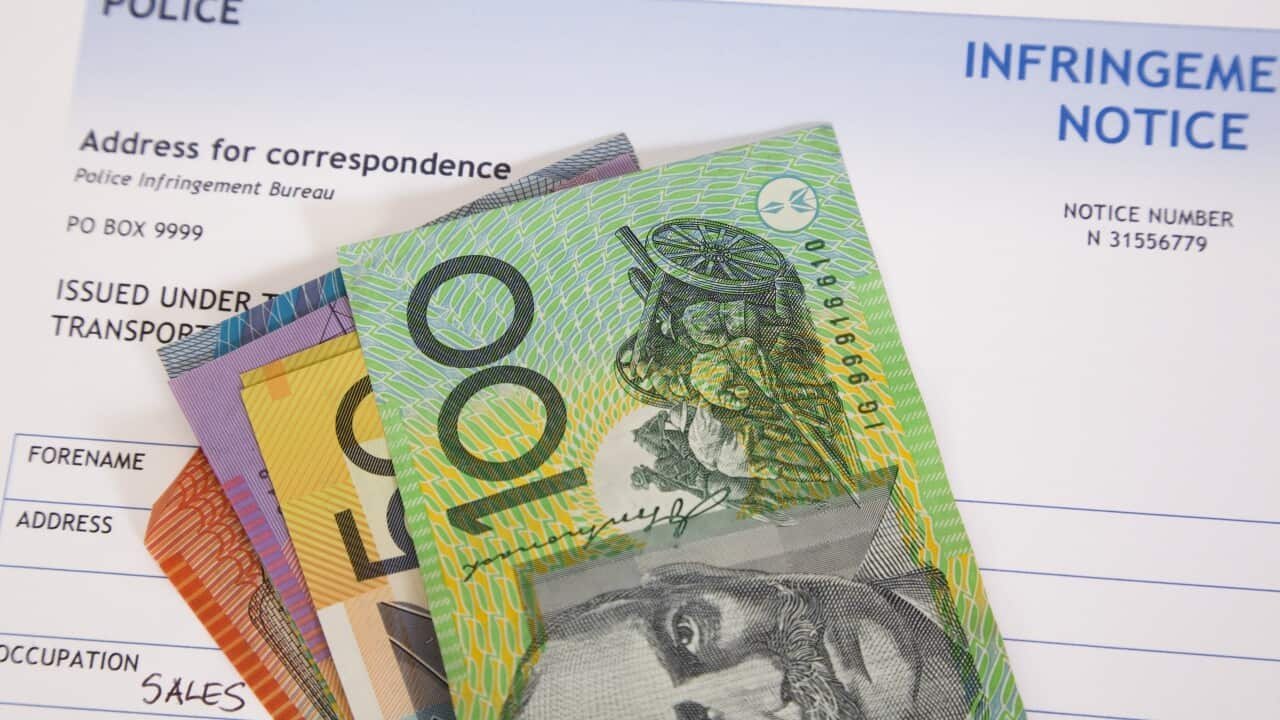A fine, also known as penalty or infringement notice, is a punishment for breaking the law. Fines can be issued for a range of offences which differ across states and territories.
Traffic, parking, and transport-related offences are the most common infringements that attract fines.
But University of Wollongong Professor of Law Julia Quilter says there are many others.
“If you don't, for instance, turn up to jury duty you can be fined for not doing that. Or if you don't vote at one of the compulsory elections in Australia. I mean you can be fined for swearing in public. So, it's known as offensive language. And now, typically the offence is dealt with by way of a fine. You can be fined for dumping rubbish somewhere, for smoking in a place where you're not allowed to smoke.”
Different government agencies enforce and manage fines, depending on where you live in Australia and the type of offence. The enforcement process may also differ.
Typically, after an infringement notice is issued, the individual has the option to pay the fine or dispute it by seeking a review from the relevant agency or by contesting it in court.
But Dr Quilter says most people should consider their situation carefully before deciding to go to court.
“A fine is actually a criminal offence. And so, if you pay it off, it doesn't go on your record. But if you elect to deal with that in court, and it's upheld, then that forms part of your criminal record. People don't actually realise that. So sometimes people think, oh, it's outrageous that I've been issued this fine, I'm going to contest this in court. But most of the offences for which fines are issued are very hard to argue against.”
